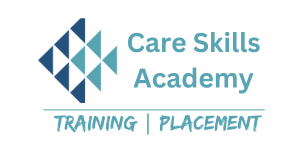The world of automobiles is fast-paced, evolving with cutting-edge technology and innovation. As vehicles become more sophisticated, the demand for skilled automotive repair technicians continues to rise. An automobile repairing course offers a structured path for aspiring mechanics to gain the knowledge and hands-on skills needed to thrive in this competitive industry. Whether you’re passionate about cars or looking for a stable, rewarding career, an automobile repairing course is the perfect gateway to success.
Why Choose an Automobile Repairing Course?
An automobile repairing course is designed to provide students with a comprehensive understanding of how modern vehicles operate. From the engine and transmission to the electrical and braking systems, this course covers everything needed to diagnose, repair, and maintain cars effectively. But why is this course worth your time and effort? Let’s break it down:
- High Demand for Skilled Technicians
The automotive industry is vast, with millions of cars on the road worldwide. As vehicles age or encounter problems, the need for trained professionals to repair and maintain them increases. This course equips you with valuable skills that are always in demand, ensuring steady job opportunities and job security. - Diverse Career Options
Completing an automobile repairing course opens doors to various career opportunities. You can work as an automotive technician in repair shops, dealerships, or start your own business. Additionally, specialized fields such as electric vehicles, hybrids, and automotive electronics offer new opportunities as the industry evolves. - Hands-On Learning
One of the most significant benefits of enrolling in an automobile repairing course is the hands-on learning experience. Unlike purely theoretical courses, this program offers practical training where students can work directly on vehicles. This real-world experience helps build confidence and ensures that you’re ready for the workforce as soon as you graduate. - Comprehensive Curriculum
A typical automobile repairing course covers essential topics, including:- Engine repair and maintenance
- Brake system diagnostics
- Transmission and drivetrain systems
- Electrical systems and wiring
- Air conditioning and heating
- Emission control systems
- Suspension and steering alignment
- Up-to-Date Training on Modern Technology
Today’s vehicles are not just mechanical but also heavily reliant on electronics and computerized systems. Modern automobile repairing courses incorporate training on diagnostics and repair of electronic components, sensors, and onboard computers, preparing you for the challenges of working with newer models.
What You Can Expect During the Course
Most automobile repairing courses span several months, offering a combination of classroom instruction and hands-on workshops. During classroom sessions, you’ll learn about automotive theory, safety protocols, and how each system in a car works. This foundational knowledge is critical when working on cars during practical sessions.
In the workshop, students work on various car models to practice skills like engine tuning, brake adjustments, and diagnosing electrical faults. Instructors often use diagnostic tools, specialized equipment, and real-world scenarios to replicate the challenges faced in professional auto repair settings. By the time you complete the course, you’ll have a strong grasp of both mechanical and electronic vehicle systems.
Job Prospects and Future Growth
The automobile repair industry is ever-growing, with a steady need for skilled technicians. According to industry reports, job opportunities in automotive repair are projected to grow over the next decade. Technicians with specialized skills, such as hybrid or electric vehicle repair, are expected to have even greater opportunities. This makes an automobile repairing course a smart investment for your future.
Additionally, many technicians move up the career ladder, becoming service managers, shop owners, or even educators themselves. Others branch out into specialized fields like automotive diagnostics, performance tuning, or motorsports, where expertise in vehicle mechanics is crucial.
Conclusion
An automobile repairing course is more than just an educational program—it’s a pathway to a stable, fulfilling career in a high-demand industry. Whether you’re passionate about cars or seeking a long-term, hands-on career, this course provides the tools and knowledge needed to succeed. With evolving technology, endless opportunities, and a solid foundation in vehicle repair, this course offers a future filled with possibilities. Don’t miss your chance to accelerate your career in the world of automotive repair!

